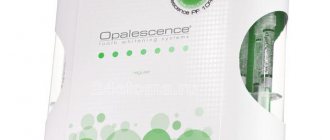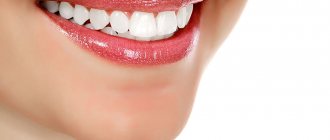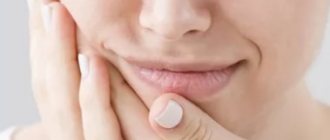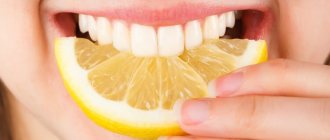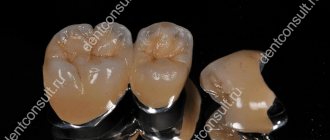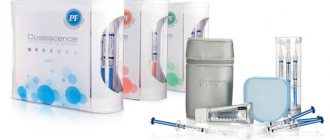Does lemon water harm our teeth?
Warm water with lemon in the morning is a popular ritual for people leading a healthy lifestyle.
And although this drink has a great effect on our body, unfortunately, it can also harm our teeth. Lemon water awakens the digestive system and strengthens the immune system. Another reason to start the day with a glass of this drink is the fact that lemon belongs to the group of alkaline foods, thanks to which it helps balance the pH of the body.
Helps one and harms another
Unfortunately, lemon water has a negative effect on our teeth. Contact with acidic drinks is not comfortable for the teeth and can weaken tooth enamel. Fruit juices, including water with lemon, destroy the protective cover that is located on the teeth, it protects the enamel from acid erosion.
How to protect tooth enamel without giving up a dose of health?
Protein restriction
Low protein diets may be helpful before starting dialysis. Your doctor can advise you on a low-protein diet based on your weight, stage of disease, amount of muscle mass, and other factors. However, everyone needs to consume enough protein.
Once dialysis begins, you will need to eat more protein. A high-protein diet with fish, poultry, pork or eggs is recommended.
How does citric acid affect teeth?
Citric acid is an organic acid known as the E330 food additive that is involved in metabolism. You can use it to whiten your teeth, but you need to do this very carefully.
The content of the article
- Properties of citric acid
- Citric acid for teeth whitening
Citric acid belongs to the class of carboxylic acids.
It is a white crystalline substance with a sour, non-astringent taste. It has virtually no calories. It dissolves well in water and some organic solvents. It melts at a temperature of 175 degrees, and upon subsequent heating it decomposes into water and carbon dioxide. This acid is actively involved in metabolism and cellular respiration. Thanks to it, skin cells can be renewed. It becomes elastic, firm and beautiful. The complexion becomes pleasant, defects gradually disappear. To do this, you need to make a mask with lemon juice once a week. It can also be added to almost any cream. Citric acid is found in all citrus fruits, pomegranates, pine needles and even shag. In the old days, it was obtained from shag. In modern industry, citric acid is produced by fermenting substances with a high concentration of sugar (for example, molasses). Often special molds are used. Citric acid is known as food additive E330. It is used as an antioxidant. The addition of citric acid improves the taste of many carbonated drinks and the consistency of processed cheese: it spreads much better on bread. Some people use it to whiten their teeth. This is indeed a very effective remedy, but it must be used with caution. The fact is that any whitening process has a detrimental effect on tooth enamel, destroying it and causing caries. These destructions are microscopic, but they affect the health of the teeth, and then the condition of some organs. The dental nerve becomes several times more sensitive. It gets to the point where it becomes painful to chew rough food. If you notice such symptoms, you should immediately contact your dentist.
The procedure can be performed no more than once a week. After this, it is not recommended to eat certain foods (cherries, beets). They can “stain” your teeth. You should also give up coffee and tea.
You can whiten your teeth using hydrogen peroxide and baking soda. However, these substances also destroy tooth enamel. After using them, you should rinse your mouth very thoroughly with warm water. Carry out the procedure no more than once a week to maintain the health of your teeth.
How does citric acid affect teeth?
Medical articles on the Site are provided for reference purposes only and are not considered sufficient advice, diagnosis, or physician-prescribed treatment. The content of the Site is not a substitute for professional medical advice, examination, diagnosis or treatment. The information on the Site is not intended for independent diagnosis, prescription of medications or other treatment. Under any circumstances, the Administration or the authors of these materials are not responsible for any losses incurred by Users as a result of the use of such materials.
How to whiten teeth using folk remedies/at home?
The answer is simple: no way. Don't try to whiten your teeth with your grandmother's advice, you will only harm your teeth.
You should absolutely not use soda, tooth powders, lemon, activated carbon, etc. to whiten your teeth. The only result of such “whitening” will be erosion of tooth enamel.
Remember! Any folk remedies are a waste of time. The worst thing is that some of them can cause great harm to your teeth.
Here are a few ways for those who don't want to spend a lot of money on teeth whitening, but want to have white teeth:
- Visit the solarium a couple of times. Against the background of a dark-skinned body, teeth will appear whiter than usual.
- Get your teeth professionally cleaned every six months. Your teeth will have a healthy, natural color.
- Try not to overuse foods that can darken your teeth: coffee, tea, chocolate, blueberries, Coca-Cola, fruit, wine.
- Do not smoke.
Tea with lemon: effect on teeth
Dentists emphasize that lemon juice is especially harmful in combination with hot water: high water temperature enhances the adverse effects of acid on tooth enamel and thereby contributes to its accelerated destruction.
True, you don’t need to give up your favorite drink altogether. Hot tea with lemon is only harmful if consumed frequently. If you drink it from time to time, and then rinse your mouth with warm water, then unwanted consequences can be avoided.
Important reminder: After drinking lemon tea, wait an hour before brushing your teeth - the acid softens your tooth enamel, and you risk damaging it with your brush.
Come to our dentistry! Our experts will be happy to tell you other interesting facts!
Eight enemies that harm your teeth
A dazzling smile and healthy teeth are long-term investments that need to be invested in throughout your life. This requires discipline and good hygiene skills.
However, your teeth are constantly faced with “enemies” such as food, artificial whitening, drinks and bad habits, which can cause a lot of harm to them in a very short period of time. So, here are the eight main enemies of your teeth.
Tongue piercing
Many people think that tongue piercings are a very cool and fashionable accessory, but have you ever thought about what metal balls constantly present in your mouth can do to your teeth? The oral cavity is not designed for metal objects, and the daily, quite noticeable tapping of your new tongue jewelry on the teeth damages the enamel. This can ultimately lead to chips on the teeth, and what is most unpleasant, on the front, most noticeable ones. In addition, systematic impact loads on teeth (microtraumas) are a common cause of traumatic non-infectious periodontitis, which requires complex multi-stage treatment.
Correct drinking regime
In the early stages of kidney failure, there is no need to limit the amount of fluid you drink. However, as the disease worsens, hydration will need to be monitored.
Between dialysis sessions, fluid can accumulate in the body. Too much fluid can cause difficulty breathing, which is a medical emergency.
Your doctor will tell you how much fluid you need to drink each day. Foods that contain a lot of water, such as soups, jellies, ice cream, grapes, melons, tomatoes and celery, need to be monitored.
Does lemon water harm our teeth?
Warm water with lemon in the morning is a popular ritual for people leading a healthy lifestyle. And although this drink has a great effect on our body, unfortunately, it can also harm our teeth.
Lemon water awakens the digestive system and strengthens the immune system. Another reason to start the day with a glass of this drink is the fact that lemon belongs to the group of alkaline foods, thanks to which it helps balance the pH of the body.
Helps one and harms another
Unfortunately, lemon water has a negative effect on our teeth. Contact with acidic drinks is not comfortable for the teeth and can weaken tooth enamel. Fruit juices, including water with lemon, destroy the protective cover that is located on the teeth, it protects the enamel from acid erosion.
How to protect tooth enamel without giving up a dose of health?
How does citric acid affect teeth?
Citric acid is an organic acid known as the E330 food additive that is involved in metabolism. You can use it to whiten your teeth, but you need to do this very carefully.
The content of the article
- Properties of citric acid
- Citric acid for teeth whitening
Citric acid belongs to the class of carboxylic acids. It is a white crystalline substance with a sour, non-astringent taste. It has virtually no calories. It dissolves well in water and some organic solvents. It melts at a temperature of 175 degrees, and upon subsequent heating it decomposes into water and carbon dioxide. This acid is actively involved in metabolism and cellular respiration. Thanks to it, skin cells can be renewed. It becomes elastic, firm and beautiful. The complexion becomes pleasant, defects gradually disappear. To do this, you need to make a mask with lemon juice once a week. It can also be added to almost any cream. Citric acid is found in all citrus fruits, pomegranates, pine needles and even shag. In the old days, it was obtained from shag. In modern industry, citric acid is produced by fermenting substances with a high concentration of sugar (for example, molasses). Special molds are often used. Citric acid is known as food additive E330. It is used as an antioxidant. The addition of citric acid improves the taste of many carbonated drinks and the consistency of processed cheese: it spreads much better on bread.
Tea with lemon: effect on teeth
Dentists emphasize that lemon juice is especially harmful in combination with hot water: high water temperature enhances the adverse effects of acid on tooth enamel and thereby contributes to its accelerated destruction.
True, you don’t need to give up your favorite drink altogether. Hot tea with lemon is only harmful if consumed frequently. If you drink it from time to time, and then rinse your mouth with warm water, then unwanted consequences can be avoided.
Important reminder: After drinking lemon tea, wait an hour before brushing your teeth - the acid softens your tooth enamel, and you risk damaging it with your brush.
Come to our dentistry! Our experts will be happy to tell you other interesting facts!
Eight enemies that harm your teeth
A dazzling smile and healthy teeth are long-term investments that need to be invested in throughout your life. This requires discipline and good hygiene skills.
However, your teeth are constantly faced with “enemies” such as food, artificial whitening, drinks and bad habits, which can cause a lot of harm to them in a very short period of time. So, here are the eight main enemies of your teeth.
Tongue piercing
Many people think that tongue piercings are a very cool and fashionable accessory, but have you ever thought about what metal balls constantly present in your mouth can do to your teeth? The oral cavity is not designed for metal objects, and the daily, quite noticeable tapping of your new tongue jewelry on the teeth damages the enamel. This can ultimately lead to chips on the teeth, and what is most unpleasant, on the front, most noticeable ones. In addition, systematic impact loads on teeth (microtraumas) are a common cause of traumatic non-infectious periodontitis, which requires complex multi-stage treatment.
White wine
Many of us know that red wine can change the color of teeth and leave a yellowish coating on them, but not everyone knows that white wine can also have a bad effect on teeth. Dry white wines are quite acidic and deplete the surface layer of enamel, gradually dissolving it. Darker dentin begins to show through the thinner enamel, which leads to an irreversible change in the color of the teeth. Such darkening of teeth cannot be treated with any whitening; only veneers will help.
Lemon
Although lemon is a rich source of minerals and vitamin C, it is also very high in acid, which can attack tooth enamel. And this, in turn, can lead to problems with increased tooth sensitivity - a painful reaction to hot or too cold food and drinks occurs. Therefore, you should not chew lemons thoroughly, and in general, try to keep them in your mouth as little as possible.
Hello to all tequila lovers!
Chewing pieces of ice
Citric acid destroys the enamel, and pieces of ice can simply chip or crack it. When you chew on ice, the same unpleasant effect occurs as if you grind your teeth vigorously.
Energetic drinks
After a hard sports workout, such drinks can be very refreshing for the body, but do not forget that they are extremely dangerous not only for your cardiovascular system, but also for your teeth. They contain acids that cause tooth decay and promote caries. And glucose, which is included in all energy drinks without exception, is an excellent breeding ground for carious bacteria.
Medicines
Saliva is one of the mouth's biggest protectors, and medications such as those for depression or high blood pressure contain ingredients that dry out the mouth and reduce saliva production. This can lead to oral problems and eventually tooth decay. And probably only the deaf have not heard about the bizarre effect of tetracycline drugs on the color of teeth. As you can see, taking medications harms not only the liver and kidneys, but also the teeth.
Pool water
Swimming in the pool is one of the healthiest sports, because it uses all muscle groups. But there is also a problem: pool water contains many very dangerous chemicals. This mixture of various additives that maintain water quality ultimately causes increased aggressiveness. I don’t think it’s even worth mentioning the increased chlorine content. Thus, while you are enjoying freestyle or breaststroke, the water from the pool is gradually destroying the enamel of your teeth.
Benefits and harms
The citrus in question contains many useful components:
- potassium and copper salts; carotene; Apple acid; essential oils; lemon acid.
By contacting with lemon, the enamel is cleansed of age spots. In addition, the product improves metabolic processes in soft tissues and has an anti-inflammatory and antibacterial effect.
It is important to understand that exposure to such bleach can cause harm. Contact with abrasives or acids is considered corrosive. After teeth whitening at home with lemon, the crystalline bond of the enamel is broken. Calcium is washed out of it. Therefore, it is important not to overdo it in this matter.
Efficiency
The product does not whiten dental tissues, but returns them to their natural shade, removing plaque and hard deposits. Essential oils effectively remove impurities, prevent the spread of viruses and bacteria, strengthen gums, but you can only brighten your smile by one tone. Only professional whitening systems can globally change the color of teeth.
Dentists advise not to get carried away with procedures for a long time. It is better to purchase a special mouthwash or professional toothpaste.
Ways to whiten teeth with lemon
To ensure that teeth whitening with lemon does not harm your health, experts recommend preparation. When planning the procedure, increase your body's intake of calcium, phosphorus and proteins (dairy products, river fish, seafood). Supplement your diet with a vitamin complex for teeth.
One-ingredient recipes
Teeth whitening can be done with lemon juice or zest. Using oil also has a brightening effect. At the same time, it has a less aggressive effect:
- Rub citrus zest onto the surface of your teeth for a few minutes. Then, without closing your jaws, wait 5 minutes and rinse your mouth with water. The procedure can be performed daily for 7–10 days. Apply a slice of fresh lemon to your teeth. After 5 minutes, rinse your mouth with water. After 7–10 days, you can notice a lightening of the enamel shade by several tones. Whitening with lemon juice additionally has an antibacterial effect on the entire oral cavity. To do this, dilute the product with boiled water (1:1). Rinse your mouth with the product for 5 minutes. Do not perform procedures for more than 14 days.
Recipes for teeth whitening with lemon at home
Lemon for teeth whitening can be used not only in its pure form, but also as an additional additive:
- Toothpaste with the addition of citrus juice will speed up the lightening process. However, the method is considered more aggressive. It is necessary to clean by adding an equal amount of juice to the paste. Read more about toothpastes → Teeth whitening with citric acid with the addition of baking soda. These two components are mixed in equal proportions and a little water is added to obtain a porridge-like consistency. Carefully brush the surface of the units with a toothbrush for several minutes. After this, you need to let the composition “work” a little, sitting with your mouth open. Then rinse the acid and soda thoroughly. After a week's course, take a break (20–40 days). The use of lemon oil has a gentle effect. In addition, the procedure assumes a therapeutic effect (anti-inflammatory, strengthening, preventive). The product must be mixed with tea tree oil. After regular brushing, dip the brush into the mixture and massage your teeth and gums thoroughly. Suitable for daily use.
Beneficial properties of essential oils
When used carefully, essential oils can be quite beneficial. Today they are widely used in medicine, cooking and, of course, in perfumery.
Essential oils are also used to disinfect the oral cavity and whiten teeth. They are safer than various abrasives (soda, chalk), but they still need to be used very carefully, while at the same time carefully monitoring the body’s reaction. The most popular oils for whitening are coconut, lemon, sunflower and fir oil. Let's talk in more detail about the features of their use.
Coconut oil
Coconut oil has good bactericidal properties and can improve the color of enamel. Whitening with its help has become popular relatively recently, but today the Internet can offer you many ways to use it. The most famous techniques:
- Rinse your mouth with coconut oil as soon as you wake up. The procedure will take you 10-15 minutes. After this, brush your tongue and teeth with regular toothpaste. At night, rinse your teeth with oil after brushing your teeth. Spit out the rest and do not rinse.
- For oral diseases, it is recommended to rinse your teeth with coconut oil after every meal.
- For a whitening effect, you can add turmeric to the oil.
Lemon oil
Due to its properties, lemon oil whitens enamel quite effectively. Therefore, it is often used in the production of tooth powders and pastes. But when whitening with pure oil, you should be very careful, as it can cause real harm to the teeth and increase the sensitivity of the enamel.
Directions for use:
- Apply the paste to your toothbrush and then add 2-3 drops of oil on top.
- Mix lemon oil with tea tree oil and also add to toothpaste.
- Brush your teeth as usual, then place some oil on a clean toothbrush and brush again. Rinse your teeth with water.
The effect of the procedures will become noticeable in about two weeks.
Fir oil
Fir oil has a viscous consistency, it is transparent or has a slight greenish tint. Since ancient times, it has been used to treat diseases of the liver and respiratory system; in addition, the substance has a positive effect on the immune system, effectively increasing the body’s resistance to various infections.
The use of fir oil for whitening was invented quite recently, but the method quickly became popular. The disinfectant properties of the oil help improve the condition of the oral cavity. Fir prevents the growth of bacteria, resulting in less yellow plaque accumulating on the teeth. But remember, you shouldn’t overdo it here either, otherwise you may get allergies and other unpleasant consequences.
Sunflower oil
Sunflower oil is widely used in the east to improve health and treat a variety of diseases. Rinsing your teeth with sunflower oil helps remove toxins and waste, and also gets rid of harmful bacteria.
The method of application is very simple: take a teaspoon of oil and rinse your mouth thoroughly with it, making chewing movements so that the substance gets on all the teeth. Next, rinse your mouth thoroughly with boiled water.
The effect of oil pulling is quite questionable and you will need to do the procedure for a long time to see any results. People who have stomach problems should use the substance with greater caution.
The effectiveness of oils for teeth whitening
Oils, of course, have some effect on the teeth and oral cavity, but in general their effectiveness is questionable. At best, they will help get rid of unpleasant odor and inflammation and, perhaps, slightly affect the color of the enamel.
But if your dream is to get a snow-white smile, you should turn to professionals. This, of course, will be more expensive, but you will get visible results in a short time. Plus, the dentist will choose the most suitable course for you, taking into account the condition of the teeth and the entire body as a whole. Today, there are many in-office and home procedures that allow you to achieve radiant whiteness without damaging the enamel. Among them there will definitely be one that suits you.
Precautionary measures
We must not forget that teeth whitening at home, as in a dental clinic, has an aggressive effect on the enamel and gums. Therefore, follow the recommendations of a specialist:
- do not increase the exposure time and the number of procedures per day; courses should not exceed more than 2 weeks; the lightening process requires preliminary and subsequent mineralization of the enamel; do not self-medicate aesthetic problems if you have diseases of the teeth and gums; if sensitivity increases (reaction to temperature changes, sweet, sour, spicy), you need to stop bleaching the enamel with lemon.
In pursuit of beauty, it is important not to harm your health with your actions.
Rules for maintaining dental health
To maintain dental health, you need
- You need to brush your teeth twice a day
, in the morning and in the evening
use dental floss to care for hard-to-reach areas
and irrigator
— say "no!"
bad habits - smoking and a lot of sweets
– visit the dentist for examination and professional hygiene twice a year
Professional teeth cleaning is available to everyone
Professional teeth cleaning is a service that is available in almost any dental clinic. The price is affordable for everyone. And after such a procedure you will feel like a million – a real star with a Hollywood smile. Some patients even say that their teeth feel lighter.
The procedure itself is completely painless if there is no caries or severe gum disease. It's comfortable. While the doctor is brushing your teeth, you can watch a movie (some dentists in Moscow provide this opportunity). For cleaning, special tools and products containing glycine are used. After cleaning, polish with a brush and a special paste. Rinse the mouth, apply a strengthening mask to the gums, check the gum pockets and that’s it, the procedure is completed.
If your gums require additional care, the doctor will prescribe appropriate procedures that you can do at home yourself.
There are many different effective oral care products. Your doctor will help you choose which ones are right for you.
It is good to use preparations containing tea tree oil.
Tea tree oil
is a unique natural product that effectively suppresses pathogenic microflora and various bacteria and viruses. Patients who use products with this oil usually have healthier teeth and gums.
Sometimes after a professional cleaning, the doctor may recommend or even prescribe an enamel testing procedure. It depends on the condition of the patient's teeth. If the enamel needs additional strengthening, special pastes are prescribed.
The rapid formation of plaque can be a sign of problems with the gastrointestinal tract. In this case, a saliva test is performed and a referral is made to a gastroenterologist.
You will also need special toothpastes for your teeth.
For patients who do not have serious problems with the condition of their teeth and gums, and patients undergoing orthodontic treatment or in the postoperative period, completely different dental care is prescribed. You also need to know about this.
Brushing your teeth, daily at home and professionally at the dentist, are equally necessary for your health!
Proper brushing of teeth allows you to remove constantly forming plaque and prevents the occurrence of dental diseases.
Let's talk about your main assistants in the fight against dental plaque.
